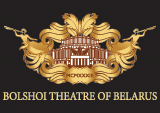 Bolshoi Theatre of Belarus
Bolshoi Theatre of Belarus
Bolshoi Theatre of Belarus
Bolshoi Theatre of Belarus
 Bolshoi Theatre of Belarus
Bolshoi Theatre of Belarus
Bolshoi Theatre of Belarus
Bolshoi Theatre of Belarus
┬Ā
On 16 December, the Larisa Aleksandrovskaya Chamber Hall will host a concert that noticeably stands out from the usual series of vocal evenings. An academic concert of chamber instrumental music is a real rarity for the Bolshoi Theatre. However, there is a reason for a meeting in a strict style. The calendar year, which has stirred up, perhaps, the whole world, is coming to an end. This year has brought a lot of inner turmoil and grief, but also hope and faith in the power of human spirit. It will take us a long time to comprehend these events, but even now we clearly feel the need to stop, freeze and listen to the state that accompanies our daily life.
┬Ā
The concert is preceded by an epigraph:
┬Ā
2020.┬ĀWe are on the verge of the end of the year. We're on the verge...
The number 2020 will never be just a number for us. We can hardly admire the abstract beauty of its periodicity, and we can hardly feel the soft rhythm of vibrations of 2 and 0, of what is greater than singularity and of what is emptiness. Now 2020 will always be filled with the most objective meaning for us.
20:20 is our score on the scoreboard. It is a draw. So far? What was in this fight?
Spontaneous, even irrational, forces vs human fortitude and bravery;
unpredictable circumstances vs the firmness of the spirit;
death vs life.
Still this is a draw.
Some day, when time gives us a flashback, we will see opportunities behind this draw. For now, we just want to stop the game and leave our post scriptum.
┬Ā
┬Ā
The concert will feature works by Johannes Brahms and Max Bruch, the music that allows each listener to immerse themselves in their own sound reality in the way that is peculiar to them: the intellectual ŌĆō through rational awareness, the lyricist ŌĆō through emotional living, the aesthete ŌĆō through experiencing the beauty of the musical absolute.
┬Ā
In different periods of his career, from his youth to the last decade, Johannes Brahms created works in the genre of instrumental trio, and not always it was about the classical composition of strings and piano. Brahms first included the winds in 1856, creating a trio for violin, French horn, and piano in E flat major. Another trio for a mixed ensemble was written in 1891, and its appearance was due to the composerŌĆÖs communication with the virtuoso clarinettist Richard M├╝hlfeld, who revealed to Brahms the rich possibilities of this instrument.
┬Ā
Unlike the previous BrahmsŌĆÖ piano trios, the trio for clarinet, cello and piano, Op. 114 (which, by the way, became the last in a series of piano trios by the composer) has neither symphonic scope or heroic intonation, nor force ŌĆō it is solely chamber. The circle of images has narrowed, vivid contrasts have disappeared, but within one emotional subjective and lyrical sphere the composer manages to achieve an extraordinary richness of shades.
┬Ā
Max Bruch was fascinated by the combination of clarinet, cello and piano that Brahms used in his clarinet trio, Op. 114. The soft, sad timbre of the clarinet perfectly harmonized with the low introspective sound of the cello, which created a unique flavour of elegiac beauty, turned to the romantic past. Instead of the cello for his Op. 83 cycle, Bruch initially chose the viola, perhaps due to its greater relationship to the violin. However, in modern performing practice, several versions co-exist: both with the viola and with the cello.
┬Ā
Almost all eight pieces, with the exception of one, are written in minor keys and reflect the best that is inherent in BruchŌĆÖs music: refined melodicism, sad grace, transparency and lightness of the musical language, reminiscent of MendelssohnŌĆÖs style of writing, a bias towards tender, nostalgic romanticism. Bruch is amazing at building the interaction of the three instruments: none of the pieces gives the impression that one of them sounds too much or too little, to the detriment of the others. The somber Andante in F minor shows BruchŌĆÖs love of Romanian folk melodies, while the more impetuous Andante con moto in G minor features the best themes ever written by the composer. Allegro Agitato in D minor and Allegro Vivace Ma Non Troppo in B flat major create an almost Mendelssohn mood and contrast markedly with the sad autumn moods of the other six pieces.
┬Ā
The concert will be performed by Denis Porechin (clarinet), Ivan Renansky (cello), and Marina Romeyko (piano).
┬Ā
┬Ā
┬Ā